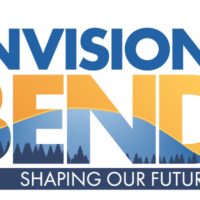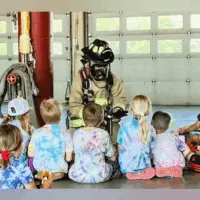
Residents treasure the greater Bend area’s outdoors recreation opportunities, small-city friendliness, creative culture, and family atmosphere. But residents also believe Bend has big challenges to navigate successfully if the community is to remain livable into the future, an Envision Bend report has found.
Among those challenges: Managing growth effectively in the midst of rapid population gains; meeting the basic needs of people, including housing for all income levels; protecting environmental resources in the face of climate change and growth; and creating a more inclusive and welcoming community. The findings are detailed in a Community Input Report published this month by Envision Bend. The report captures input received from more than 2,250 residents by Envision Bend’s “Bend Vision Project,” which conducted a survey, community leader interviews, and focus groups in 2022. To view the entire report, please visit envisionbend.org/reports.
“There is a sense in the community that this is a pivotal moment for greater Bend,” said Matt Muchna, Envision Bend executive director. “We need to take action today to build a future that reimagines what is possible. One that faces the inequality of today to create a livable and vibrant future or everyone.”
Key findings from the Community Input Report:
Core values — Residents overwhelmingly value the region’s natural environment, scenery, parks, and outdoor recreation opportunities. They also value Bend’s sense of community, small-city characteristics, family atmosphere, education and health care systems, growing diversity, lack of serious crime, innovative entrepreneurial culture, the arts, and shopping amenities.
Growth — Many Bend area residents say growth is impacting virtually every aspect of community life, and they believe there needs to be greater balance between future growth, development and livability. Residents say the lack of affordable housing is forcing people to live farther and farther away from the city and their workplace, leading to increased traffic, negative environmental impacts, more sprawl, less cultural diversity, and a shrinking labor pool. Some point to the housing crisis as a contributor to the number of unhoused people living in Bend.
Residents rank the impacts of climate change — such as declining water availability, lingering drought, and catastrophic wildfires — third behind growth and housing as Bend’s biggest challenge. They say climate change has left Bend’s environment, economy, infrastructure, and livability vulnerable today. While not every Bend resident believes humans are the cause of a warming planet, there is consensus that temperatures are rising and there is less precipitation.
Is Bend a welcoming place? Some residents say Bend retains a strong sense of community, while others fear Bend is losing that connectedness, mentioning rapid growth, an influx of wealth and new residents, and divisiveness over politics, pandemic mandates, and cultural issues as factors. Some say tension exists between people who have lived in Bend for at least several years and those who arrived during the pandemic or shortly before.
Who is welcome here? Bend is becoming more racially and culturally diverse, but some residents say they don’t consider Bend a welcoming community. They cite the lack of access to affordable housing, transportation, and health care as major barriers, along with discrimination and stereotypes. The lack of diversity in community leadership positions and the lack of materials translated into Spanish also are cited as barriers.
The COVID pandemic continues to impact specific communities in the region. About 54 percent of Latino survey respondents, 39 percent of low-income earners, and 33 percent of younger people under the age of 30 say the pandemic and other public health concerns are the biggest challenge to Bend’s resilience. Just 20 percent of overall survey respondents say so.
The Community Input Report wraps up the “outreach phase” of the Bend Vision Project. The next phase is scheduled to begin this spring when volunteer “action teams” utilize what was learned from residents and develop strategies for Bend to reach its desired future. These strategies, built from ideas initially suggested by community members, will be featured in a five-year plan scheduled to be released later in 2023. The plan also will list lead partner organizations that have agreed to champion each of the strategies and overall vision.
To assist the action teams, the Bend Vision Project is launching an online poll next week asking residents which potential strategies designed to ensure Bend remains livable in the future are the highest priority for the community. The poll will be available at envisionbend.org in both English and Spanish.
The potential strategies were derived from more than 3,000 ideas provided by residents who participated in the Bend Vision Project’s outreach work last year. Envision Bend is a nonprofit organization that works with government, business, community groups, and
people of all backgrounds and perspectives from across the Bend area to help shape the community’s future, making Bend a better place for everyone. For the entire Community Input Report and more information on the Bend Vision Project, please visit
envisionbend.org/reports.















